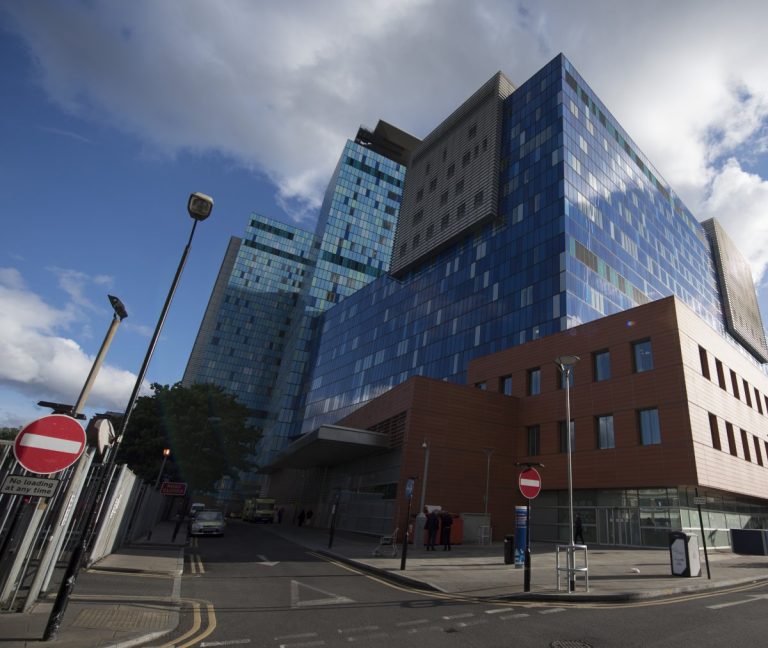A report on England’s National Health Service released Thursday said the $215 billion national health system is in “crisis mode”, missing targets for cancer, emergency and inpatient care, and Health Secretary Wes Streeting warned the service could collapse without major reforms. File photo by Will Oliver/EPA
September 12 (UPI) — A damning report on the UK’s National Health Service (NHS) released on Thursday said the country’s free universal health system is in “crisis mode” as it struggles with the impact of COVID-19, failing to meet targets for cancer, emergency and hospital care despite spending rising to more than $215 billion.
A 163-page independent review of England’s NHS found it was in “serious trouble”, with survival rates from cancer and heart disease lagging behind other countries and public confidence at its lowest level ever.
“Waiting time targets are not being met – from access to GP, community care and mental health services, to waiting times for emergency care, and even routine surgeries and treatments as well as cancer and cardiac services,” Lord Darge, a former health secretary and surgeon general, said in the report.
The report found that long delays to treatment were “normalised”, with 300,000 people waiting for non-urgent hospital treatment for more than a year and 1.75 million waiting six to 12 months – in breach of the NHS constitution’s 18-week limit between referral and the start of treatment.
The UK “made no progress” in diagnosing stage I and stage II cancer between 2013 and 2021, resulting in “significantly higher cancer death rates” compared with similar countries.
The 62-day target for referral to first care has not been met for the past nine years, with just under 66% of patients being seen within the deadline as of May.
In 2023, the detection rate improved from 54% to 58%, with the introduction of targeted lung screening programs resulting in significant improvements in early detection of lung cancer.
Rapid access to cardiac care has also decreased, with the time for rapid intervention to unclog arteries for the most at-risk heart attack patients increasing by 28% from 114 minutes in 2013-2014 to 146 minutes in 2022-2023.
For suspected stroke patients, getting a brain scan in the crucial first 60 minutes is a lottery – four in five in Kent in the south of England got a scan, compared with just two in five in Shropshire in the west of England.
GPs are seeing more patients than ever before, but a combination of doctor shortages and population growth has led to huge disparities in the ratio of patients to GPs, particularly in deprived areas, with more than a million people on waiting lists for community services.
A further one million people are on a waiting list for mental health services, of which 345,000 have been waiting more than a year for their first contact, including 109,000 children and young people under the age of 18.
Emergency departments are in a “devastating state”, with most departments meeting the four-hour target just over 60% of the time and 10% of patients waiting more than 12 hours for treatment.
Citing the Royal College of Emergency Physicians, the report said long waiting times could result in an extra 14,000 avoidable deaths a year – more than double the number of British military combat deaths since the NHS was founded in 1948.
“How long people wait, and the quality of care, is at the heart of the social contract between the NHS and the public. The NHS has failed to deliver on its most important promises to the public since 2015,” Mr Darge said.
Darge said the decline did not come overnight but was the result of a decade of decline caused by declining productivity and a lack of funding in the face of growing demand for services due to an ill and ageing population.
But Mr Darge insisted that “the vital signs of the NHS remain good”, and praised staff across the service for their “exceptional clinical talent and skill” and “united by a deep and abiding belief in NHS values, a shared passion and determination to make the NHS better for patients”.
“Despite huge gaps in capital investment, the NHS has more resources than it has ever had before, even though productivity is nowhere near where it should be,” Darge said.
He called for a major shift away from much of the costly delivery of health care in hospitals, towards care in the community, better coordinated services, and prevention measures to stop people getting sick in the first place.
The report was commissioned by Prime Minister Keir Starmer’s New Labour government to provide a picture of the state of the system from cradle to grave to inform the government’s plans for services over the next decade.
Health Secretary Wes Streeting said the health system could be overwhelmed without reforms to deal with soaring health costs, expected to exceed $215 billion this year in England alone, because of a rapidly ageing, sicker population and rising prices.
“If we’re not careful, we end up with an NHS and a country rather than an NHS nation, and it’s much more likely that the NHS will collapse,” he told the BBC.
Starmer said the NHS had no choice but to “reform it or die” in a speech late on Thursday, promising the biggest overhaul of the NHS in its 76-year history and is expected to publish a new 10-year plan within months.


